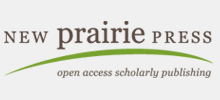Keywords
physiological arousal; stress; couples; help-seeking; financial therapy; financial planning
Abstract
There continues to be a great need for financial guidance within American households, yet the utilization of professional financial help, despite its growing accessibility, is low. It has been suggested that physiological arousal is an important factor that influences help-seeking behaviors. This paper tests the hypothesis that help-seeking intentions at the couple level are shaped in part by physiological arousal within the couple. Although exploratory, findings suggest the greater the joint level of arousal, the more likely a couple will be to report an intention to meet with a financial planner. Couples who experience a higher level of arousal during a financial therapy session were found to be more likely to self-report an intention to engage in future financial planning services. Conversely, couples who reported less intention to seek help responded with less arousal during sessions. Implications for financial professionals working with couples are discussed.
Creative Commons License

This work is licensed under a Creative Commons Attribution-Noncommercial 4.0 License
Recommended Citation
Ford, M. R., Grable, J., Kruger, M., & DeGraff, A. (2017). Physiological Arousal during Couple Financial Discussions as a Precursor to Seeking Financial Planning Help. Journal of Financial Therapy, 8 (1) 2. https://doi.org/10.4148/1944-9771.1131
Included in
Family, Life Course, and Society Commons, Finance and Financial Management Commons, Physiology Commons, Psychology Commons

